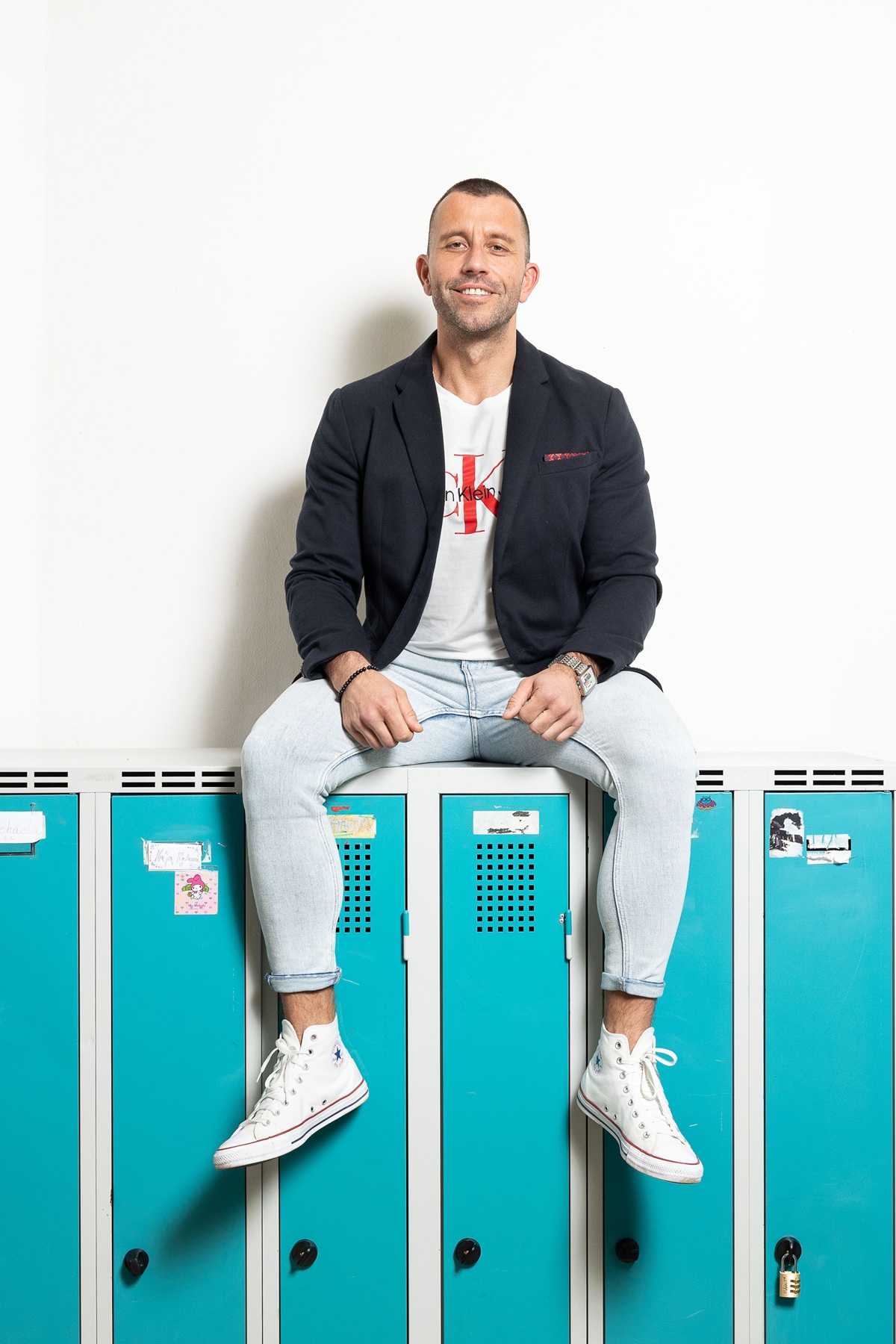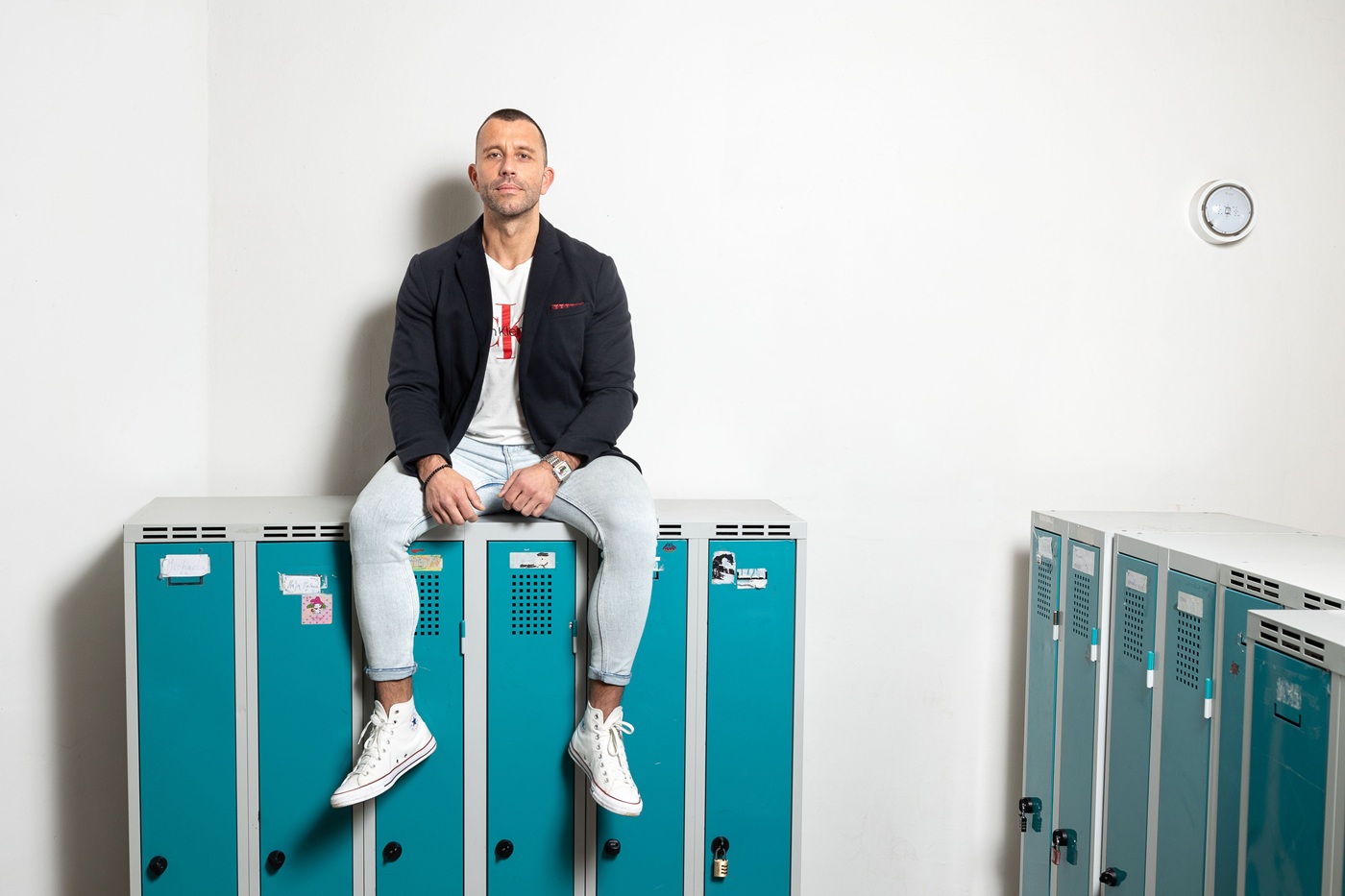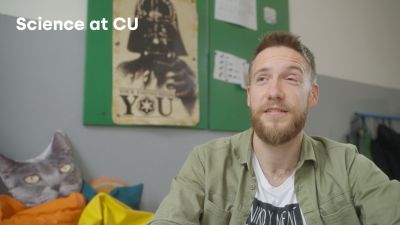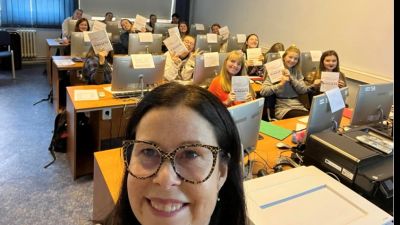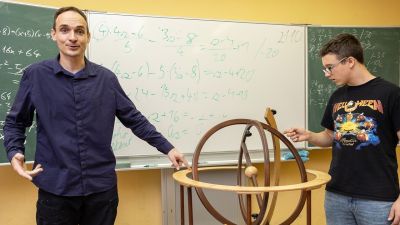“Due to mobile phones, children get used to constant stimulation and rapid changes of stimuli. This affects their ability to concentrate properly +on tasks that require patience and systematic work,” says Lukáš Barborka, a graduate from the Faculty of Education at Charles University and a mathematician who recently received the Prof. Václav Příhoda Award for top graduates of teacher training programmes.
What was it like for you to start teaching, and straight away at a primary school with an inclusive focus?
The beginning was full of challenges for me and until now I am constantly trying to improve my methods to adapt my teaching to a diverse group of pupils, from children with special educational needs to talented individuals and pupils from different socio-cultural backgrounds. Other challenges are soon became apparent: How to cope with the influence of digital technologies, children's psychological difficulties and, unfortunately, their growing aggressiveness, as well as a marked rise in the number of foreign pupils.
As I lacked suitable textbooks, methodologies and tools for this specific school group, I had to learn to improvise. Collaborating with assistants and specialists was demanding in terms of time and coordination. As a perfectionist and a mathematician who often questions even his own abilities, I soon felt the pressure and hints of burnout syndrome.
How did you get through it?
Sport helped a lot. And there were positive ‘crumbs’ or ‘nuggets’: positive feedback from some of the students who are inquisitive, active, will talk to you about their extracurricular activities... I would say that even those challenging experiences have pushed me professionally and humanly. It was exhausting but rewarding. As Patočka says: shocks lead to deeper reflection. And so, in spite of everything, I am grateful for this journey.
All in all, that sounds less than positive: that teaching is really challenging for you.
It's really about the circumstances we are in today. In our postmodern society, which often relativises strong values and weakens authority, we have an environment in which teachers have to fight not only for the attention of students, but also for their respect, the respect of their parents, and for the very meaning of education. School should be a place of mutual cooperation between teachers, pupils and parents, where everyone contributes to the development of the child. Unfortunately, there is an increasing phenomenon in the school environment where teachers hesitate to give a student a disciplinary note for inappropriate behaviour. The reason is not leniency, but fear of the reaction of parents who do not wish the note to remain in the system and strongly request its deletion. This trend, which is confirmed by many of my colleagues, leads to the fact that disciplinary notes in systems like School Online often serve only as a formal communication to parents instead of a real educational tool.
How do you help pupils who have a negative attitude towards math, are apprehensive about it or are not confident?
One of the main reasons why pupils are afraid of math is the fear of making mistakes. Therefore, it is important to create an environment where mistakes are not punished but seen as a natural part of learning. Pupils need to know that they can question, try different ways of solving and learn without fear of ridicule. Breaking down the myth that success in maths depends on 'natural talent' is also key. In fact, success is the result of systematic work, training and the development of thinking strategies - much like in sport or music.
So motivation alone is not enough?
The learner must be willing to actively engage, and this is where we face a growing problem - the declining ability to concentrate due to digital technology and various (often related) addictive substances. Many children, including those with special educational needs, spend hours on mobile phones, where they become accustomed to constant stimulation and rapid changes of stimuli. This weakens their ability to concentrate on tasks that require patience and systematic work - key skills not only in maths but in life in general.
Digital technologies are a reality; they cannot be banned. Where do you see a healthy line between a smart tool and a dangerous dependence on it?
Schools should be the place that makes this issue clear. If we ignore it and rely on children to 'somehow manage' their digital addiction, we risk raising a generation incapable of coherent thinking and persistent work. It is time to stop pretending that this is only a personal choice for parents and individuals. It is a problem that affects the whole of society and whose consequences we see more and more clearly in the declining ability of children to learn, concentrate and think critically.
What is your solution?
I have one suggestion for change, and it is certainly not just my personal opinion. It is a position that has also been issued, for example, by the world organisation UNESCO, which, based on studies in the Technology and Education Report 2023, recommends a ban on mobile phones in all schools worldwide.
Why should a child be allowed to surf the Internet and chat during school hours when it has been proven to have a negative impact on their academic performance? And all this with the money that our entire society is sending to schools and teachers to educate this child? Whether to start regulating this area in the country should not even be a question today! The question is why it hasn't happened yet and what still needs to happen for us to finally see digital technology in children in the same way as smoking and alcoholism. The facts speak for themselves.
Have you encountered any surprising discoveries or changes in your own approach to teaching through working with a diverse group of learners?
Yes. I have come to understand that one-size-fits-all teaching methods don't work: each pupil needs an individual approach. Initially I stuck to the theory from college, but practice taught me to be flexible and creative. The key is to perceive the needs of the class, not to be afraid of improvisation and to find a balance between ideals and reality.
Do you have a specific example of a time when you were able to awaken a "thirst for knowledge" in your students?
When teaching the Cartesian system (a way to uniquely determine the position of points in a plane or space using numbers or coordinates – editor’s note). I also introduced the seventh graders to "taxicab geometry", which uses a different way of measuring distances than Euclidean geometry ("classical" geometry, in which the distance between two points is measured as a straight line, i.e. the shortest possible path – editor’s note.). The pupils were intrigued by the fact that seemingly obvious concepts such as a circle or the axis of a line segment can have a different shape than they are used to. They were so enthusiastic about the discussion that they started to investigate further themselves. I saw similar enthusiasm with topics like infinity or higher dimensions - moments when they realised that there was much more to math than they expected.
A few days ago, you received the Prof. Václav Příhoda Award for the best graduates of teacher training programmes. What are some of the most interesting insights that came out of your research for your thesis that you use in your teaching of primary school pupils?
Mathematics is based on abstraction, which is constantly evolving. Reflective abstraction allows for a re-evaluation of knowledge, which is reflected in the development of mathematics - from empirical findings to revolutionary theories. Thus, my work has shown that taxi geometry is an ideal tool for reflection - we measure distance only along permissible routes, much like navigating a city street grid. The different conception of distance shows students that intuition can be deceptive and that definitions are crucial. This principle holds true in life: the clash of different perspectives leads us to a deeper understanding of the world.
What advice would you give to student teachers who are just entering the field?
To expect that their path will not be straight and smooth - just like in taxi geometry (laughs). Their initial ideas may be different from reality, and only through practice and finding their own approach will they find their way to be good teachers.
I would like to see society return to truthfulness, decency and respect. We need to re-engage in dialogue, think more deeply, and not just see the world through the filtres of technology. We are role models for children - if we want them to grow up in an environment of real values, we need to live them ourselves.
And I wish all current teachers strength, patience, and faith in a better future!
| Lukáš Barborka |
| During his studies at the Faculty of Education at Charles University, Lukáš Barborka started working as a mathematics teacher in an inclusive primary school. His work experience allowed him to gain a deeper understanding of the education of pupils with special needs and to look for ways to teach mathematics to awaken pupils' desire for knowledge and to support their personal development. The aim of his thesis was to investigate the understanding of geometric concepts in secondary school pupils using non-Euclidean geometry. At the end of March this year, he received the Prof. Václav Příhoda Award for the best graduates of teacher training programmes. |



